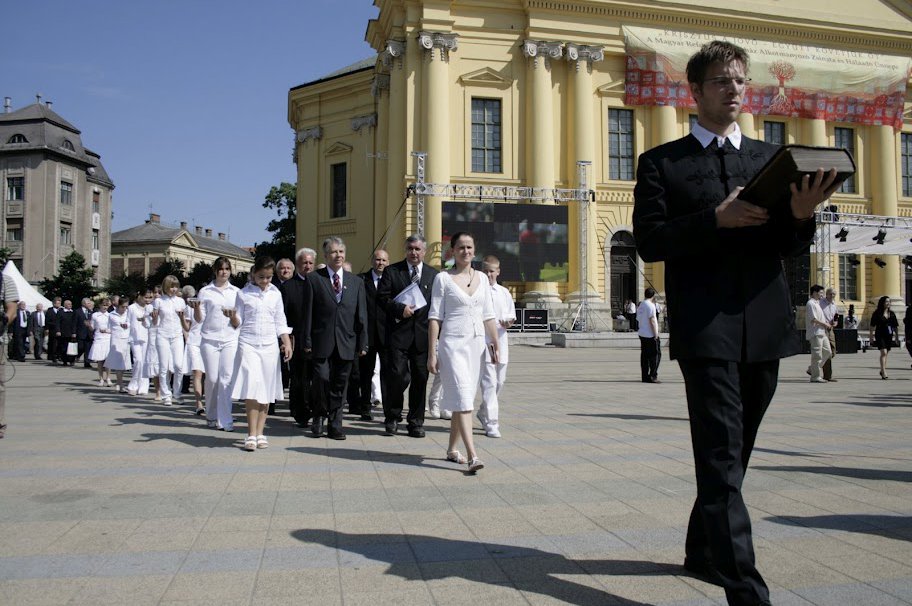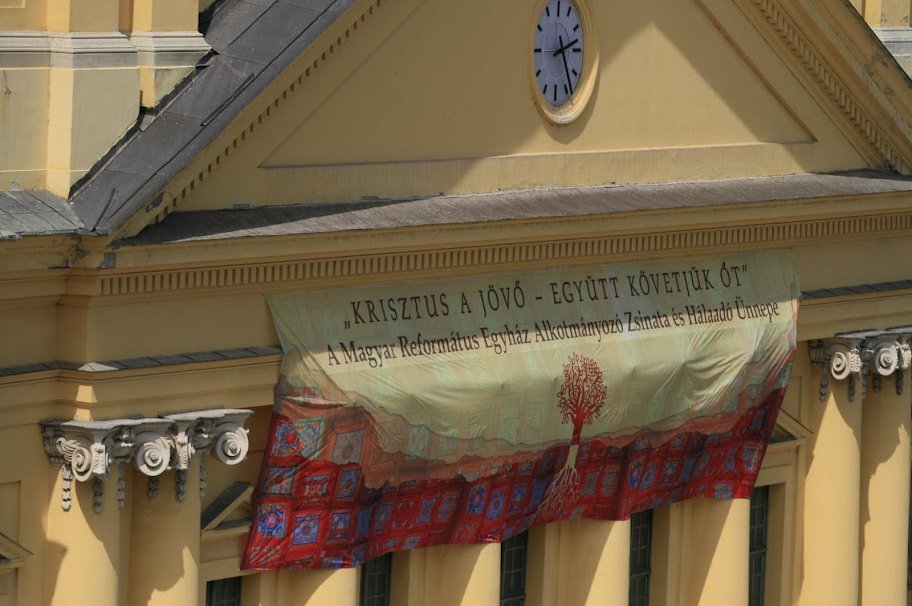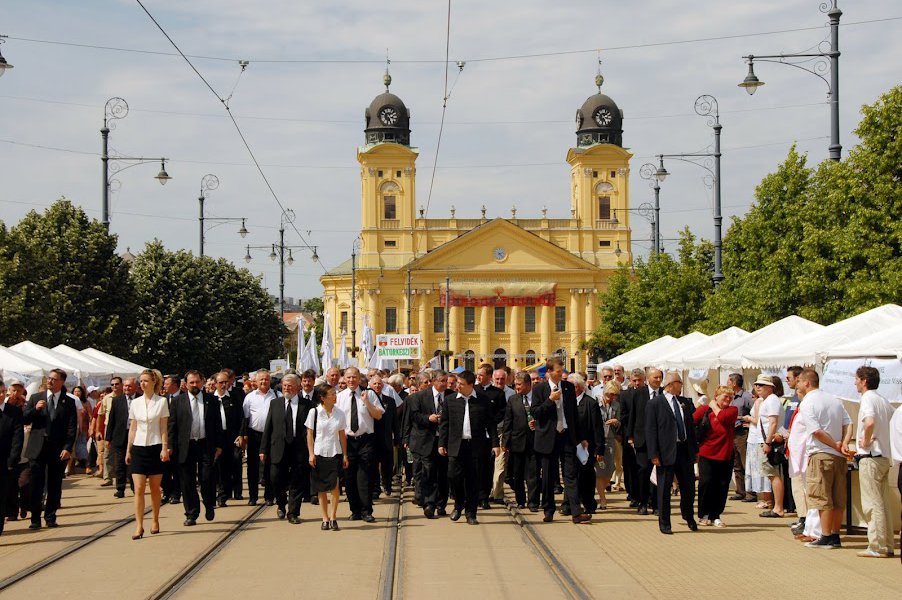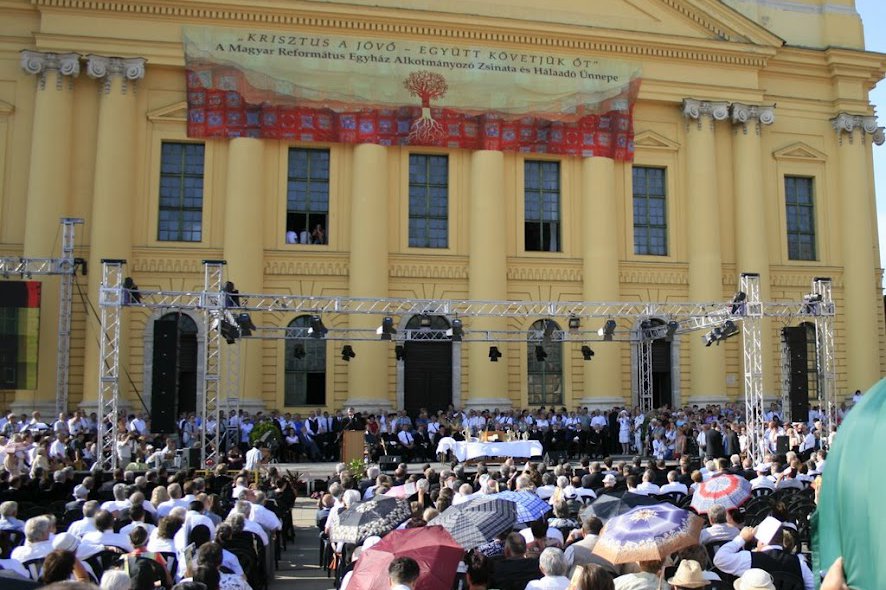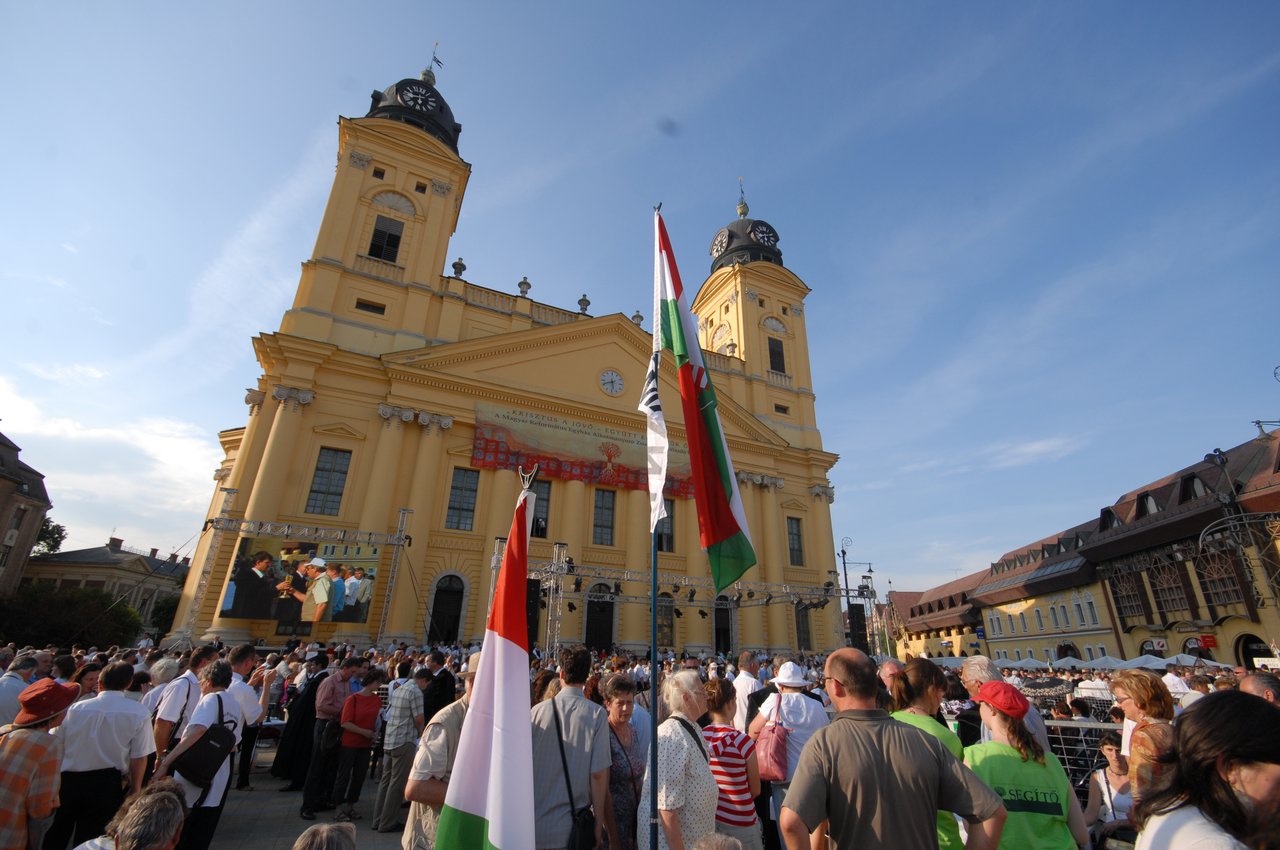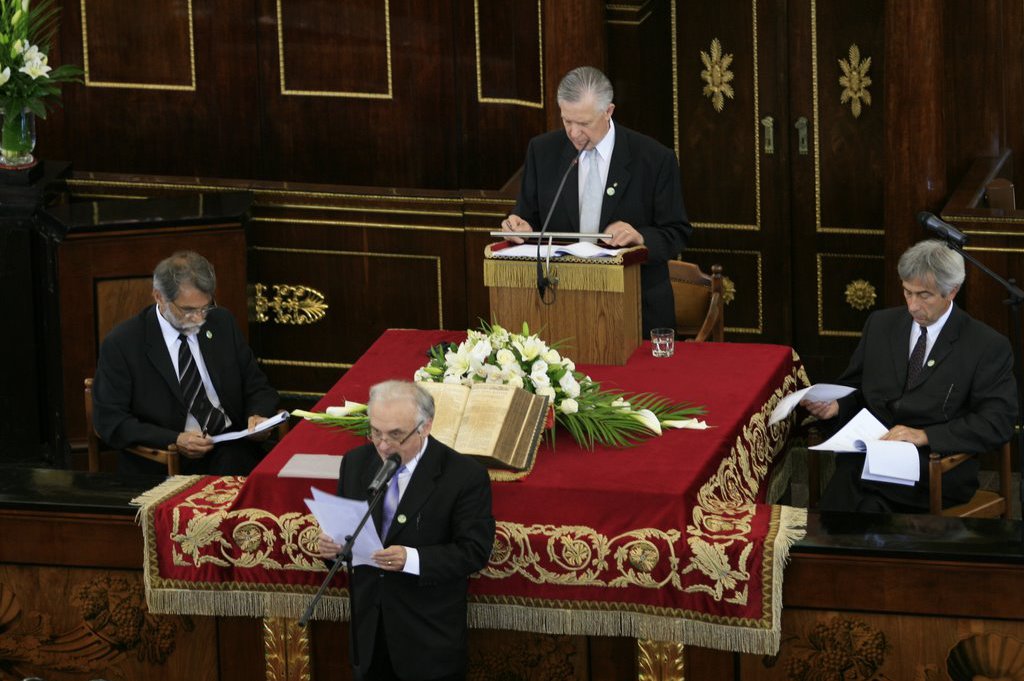The name "Reformed Church in Hungary" does not refer to the entire "Hungarian Reformed Church." These are two different organizations. The latter is not a legal entity in terms of international law, but an expression of a special church communion in the form of a Common Synod. It is composed of the Hungarian-speaking reformed churches in the Carpathian Basin who are all registered in their respective countries separately.
The Hungarian Reformed Church (HRC) was established by the Constituting Synod on 22 May 2009 in Debrecen. It is a community of Reformed churches in the Carpathian Basin that incorporates Hungarian Reformed congregations both within and outside the borders of Hungary because of their separation from each other as a consequence of World War I. The constitution of the church, adopted by consensus, declares that the HRC is a community of joined churches with a common synod, which can pass legislation and make formal statements concerning issues decided upon by the highest syndicates of participating churches. However, the joined churches are autonomous and independently form their own organizational systems (with the exception of those things regulated by the common constitution and laws).
The HRC's operational body is the General Convent. As the common representative body of the Reformed churches in the Carpathian Basin, it has an important role in the coordination of common issues and works to achieve unity through a harmonizing liturgy and Hymnbook, because of their cooperation in mission and diaconia. The General Convent consists of all the deans and lay presidents in office of the Reformed presbyteries within the Carpathian Basin, as well as bishops and first elders in office of the church districts. Its presidium meets every two months and is composed of the bishops and first elders (lay presidents) of the ten church districts in office.
The Hungarian Reformed Community, the churches in and around Hungary, understand themselves as "mother churches" or "churches of origin" of the diaspora communities. The Presidium of General Convent develops and coordinates those programs that aim to support the diaspora communities, including regular visits and service of Hungarian pastors in the Western-European cities, coordination of theological students studying abroad or even financial aid.
The constitution of the Hungarian Reformed Church
was ratified by the following churches:
Reformed Church in Hungary
Reformed Church in Romania
Outside Hungary, the largest Reformed community lives under the guardianship of the Reformed Church in Romania. The work done in its two districts is harmonized by a joint synod. Their joint minister education and training takes place at the Protestant Theological Institute based in Kolozsvár (Cluj). After the Treaty of Trianon, the development of the two Reformed districts diverged. The state recognition of the existing Transylvanian Reformed Church District was not problematic: minister training in Kolozsvár continued and work in educational institutions – though under stricter state control and supervision - resumed. The situation of the newly-formed Királyhágómellék Reformed Church District – along the Hungarian border – was much worse. The process of legal recognition was considerably hindered by the fact that its congregations had formerly belonged to the Transtibiscan Church District based in Debrecen. Two decades of uncertainty drew a considerable amount of energy from congregation-building and Church-run education.
Reformed Christian Church in Slovakia
Reformed Church in Transcarpathia
The Reformed Church in Sub-Carpathia is the oldest Protestant Church in Ukraine. It was founded in 1921, when the Sub-Carpathian region became a part of the Czech-Slovak Republic. During the Soviet era, the Church lost its legal status and many church-owned properties were seized and privatized. The structure of the Church did not exist, atheist propaganda was promoted and many pastors were deported. Eventually, the fall of the Soviet Union brought relief, and with the help of Church sponsors, schools and churches were re-opened.
The Reformed Church in Sub-Carpathia currently has around 70 000 members, most ethnic Hungarians, in nearly 100 parishes. It is organized into three Presbyteries: the Beregi, Ugocsai and Ungi Presbyteries.
It is a constituting member of the Hungarian Reformed Church, which was established in May 2009 and consists of Hungarian-speaking reformed communities in the Carpathian Basin. It is also a member church of the World Communion of Reformed Churches.
The Official name of the church in Ukrainian would be „Transcarpathian”, as this region lies beyond the Carpathian Mountains, seen from Kijev. In Hungarian, the commonly used term nevertheless reads “Sub-Carpathian”. We use the two terms interchangeably.
Reformed Christian Church in Serbia
The Reformed Christian Church in Serbia was originally part of the greater Hungarian Reformed Church. After the First World War, Hungary lost two-thirds of its territory, and the Hungarian Reformed communities beyond the new boarders of Hungary were forced to reorganize. The Hungarian Reformed communities in this new region ended up living as dual minorities, being Hungarian and Reformed.
The first Hungarian translations of the Bible were brought during the Hussite movement to the southern regions of the Hungarian Kingdom (called Délvidék or Vojvodina) and the Ottoman Empire. At the time of the Reformation, Reformed pastor, Mihály Sztárai introduced and then planted 120 Reformed congregations in the region. After the fall of the Ottoman Empire, many Reformed Hungarians moved from Debrecen, in the north, to the southern regions. In the First World War, Hungary lost two-thirds of its territory, including the southern regions, now part of Serbia. In 1933, the Reformed Christian Church in the Yugoslavian Kingdom was established and approximately 55 000 Reformed people of Hungarian, German, Czech, and Croatian origin were active members of the Church. During the Second World War, the region and the Church were reunited as a part of Hungary and the Hungarian Reformed Church. However, after War, the same territories were, again, torn from country.
During the Cold War, church properties were nationalized, causing the churches to struggle financially. In 1953, the Law on Religion freed the properties from the state, allowing autonomy of the church and maintenance of international ecumenical relations. In the 1970s, the Church faced another obstacle. Due to the lack of theological institutions, the number of Reformed pastors and congregation members decreased dramatically. After the breakup of Yugoslavia, as well as Reformed Christian Church of Yugoslavia, the Hungarian-speaking Reformed communities living in the, now, northern part of Serbia, specifically Vojvodina, reorganized to the Reformed Christian Church in Serbia.
Today, the Church keeps the same confessions as the Reformed Church in Hungary, the Second Helvetic Confession and the Heidelberg Catechism. The Reformed Christian Church in Serbia has 19 pastors serving 17 000 members in 50 congregations. Among the priorities of the Church are the dedication to the children and young people. Despite the financial challenges, the ministers and members of the Church takes its mission for the children and young people very seriously. Currently, the Reformed Christian Church in Serbia is an active member of the Conference of European Protestant Churches (CPCE), the Conference of European Churches (CEC), the World Communion of Reformed Churches (WCRC), and the World Council of Churches.
Reformed Christian Church in Slovenia
.
Reformed Christian (Calvinist) Church in Croatia
.
